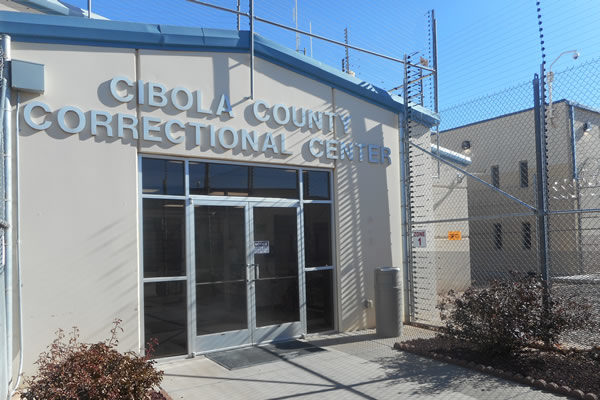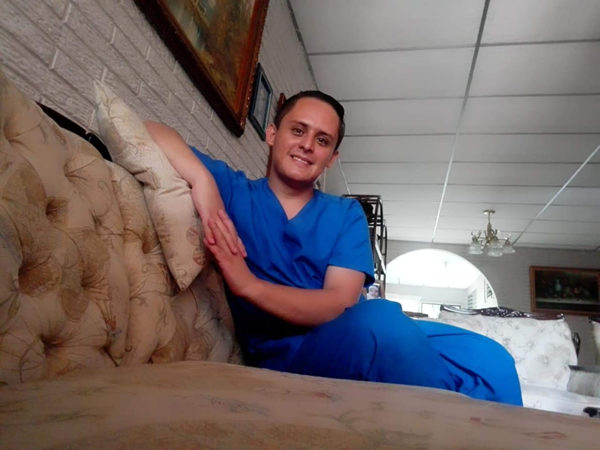Dozens of Advocacy Groups Demand ICE Release all Transgender Detainees
More than 80 advocacy groups on Tuesday demanded U.S. Immigration and Customs Enforcement release all transgender people who are currently in ICE custody.
The Human Rights Campaign, Immigration Equality, Whitman-Walker Health, the Los Angeles LGBT Center, the National LGBTQ Task Force, the National Immigrant Justice Center, the Santa Fe Dreamers Project, Trans Queer Pueblo, the TransLatin@ Coalition and Refugee and Immigrant Center for Education and Legal Services (RAICES) are among the organizations that signed the letter sent to Acting ICE Director Matthew Albence and Acting Department of Homeland Security Secretary Chad Wolf.
“Transgender immigrants are simply not safe in immigration detention,” reads the letter.
The letter specifically refers to the case of Kelly González Aguilar, a trans woman from Honduras who has been in ICE custody for more than two years “despite her clear eligibility for release on parole.”
González, according to the letter, has “experienced violence and hatred since” childhood because of her gender identity. The letter says ICE kept her in solitary confinement “for months” in a detention center in Louisiana “for no reason other than her gender identity” before her transfer to the Cibola County Correctional Center, a facility in Milan, N.M., run by CoreCivic, a private company once known as the Corrections Corporation of America.
“Now having spent more than 600 days in detention, Kelly’s physical and mental well-being continues to deteriorate,” reads the letter.

An ICE spokesperson has not returned the Washington Blade’s request for comment on the letter, but the agency in previous interviews and statements has defended its treatment of trans detainees.
A 2015 memorandum then-ICE Executive Associate Director of Enforcement and Removal Operations Thomas Homan signed requires personnel to allow trans detainees to identify themselves based on their gender identity on data forms. The directive, among other things, also contains guidelines for a “respectful, safe and secure environment” for trans detainees and requires detention facilities to provide them with access to hormone therapy and other trans-specific health care.
ICE in 2017 opened a unit specifically for trans women at the Cibola County Correctional Center.
This reporter is among the handful of journalists who ICE invited to tour the facility on June 12, 2019. More than two dozen trans women at the Cibola County Correctional Center roughly two weeks later in a letter they sent to Trans Queer Pueblo, a Phoenix-based group that advocates on behalf of undocumented LGBTQ immigrants, complained about inadequate medical care and staffers who “psychologically and verbally” mistreated them.
Trans women in ICE custody who were detained at the Otero County Processing Center, a facility in Chaparral, N.M., run by the Utah-based Management and Training Corporation, last year claimed guards subjected them to transphobic comments and forced them to “bathe and sleep in units with men who sexually harass them.” They also allege guards did not stop their fellow inmates from using transphobic slurs against them.
Roxsana Hernández, a trans Honduran woman with HIV who was briefly detained at the Cibola County Correctional Center before she died in ICE custody at a hospital in Albuquerque, N.M., on May 25, 2018. It also highlights Johana “Joa” Medina León, a trans Salvadoran woman who passed away at a hospital in El Paso, Texas, on June 1, 2019, three days after ICE released her from the Otero County Processing Center.
Medina’s family filed a wrongful death lawsuit against ICE and the Department of Homeland Security, which oversees it.
“I really want to know exactly what happened,” Medina’s mother, Patricia Medina de Barrientos, told the Blade last July during an exclusive interview in the Salvadoran capital of San Salvador.

More than 40 Democratic members of the U.S. House of Representatives last week in their own letter to Albence and Wolf called for ICE to release all trans people in their custody. The lawmakers in their letter, among other things, cited Medina and Hernández’s deaths.